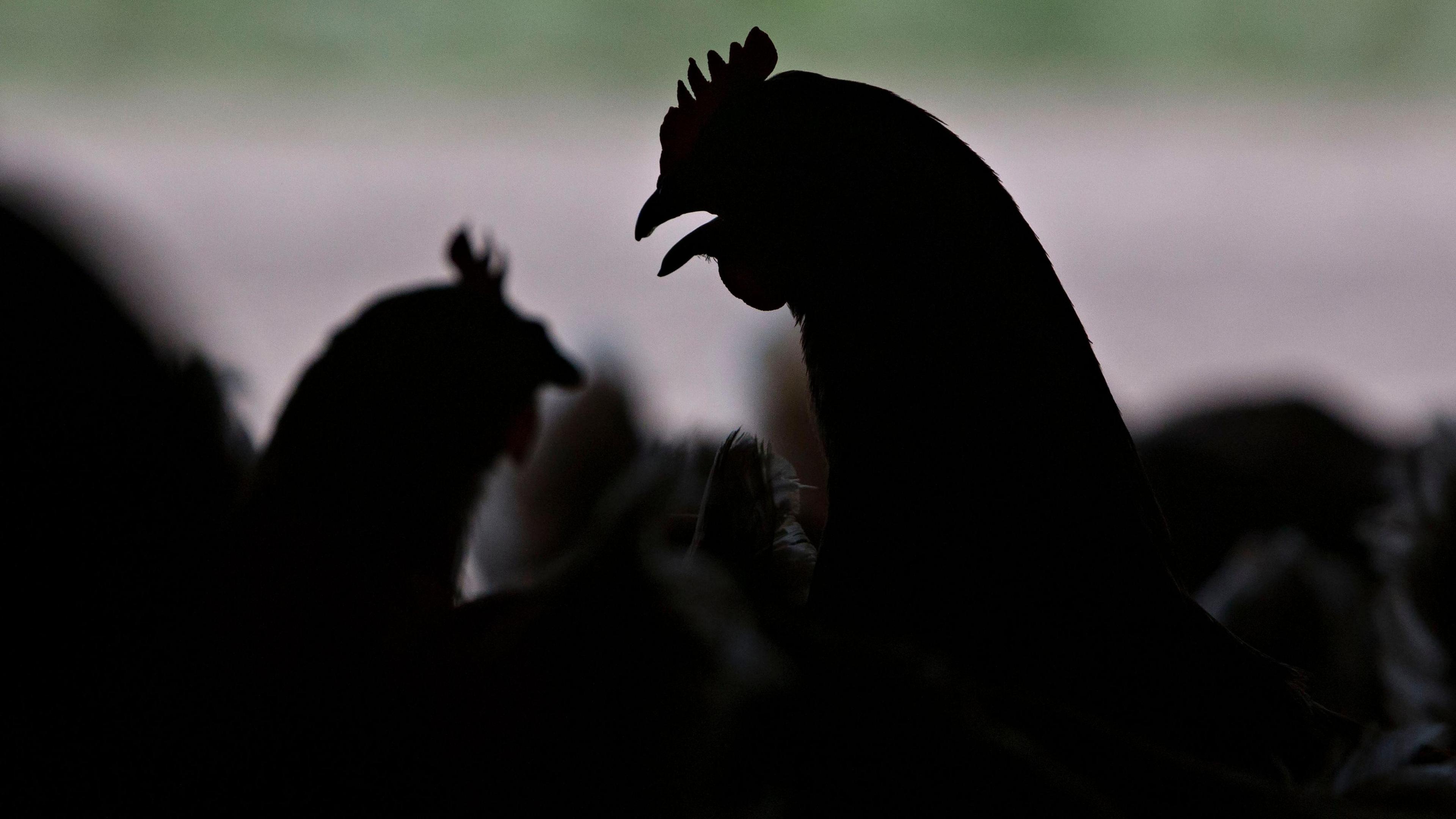Vaccinate chickens to stop bird flu 'flockdown'
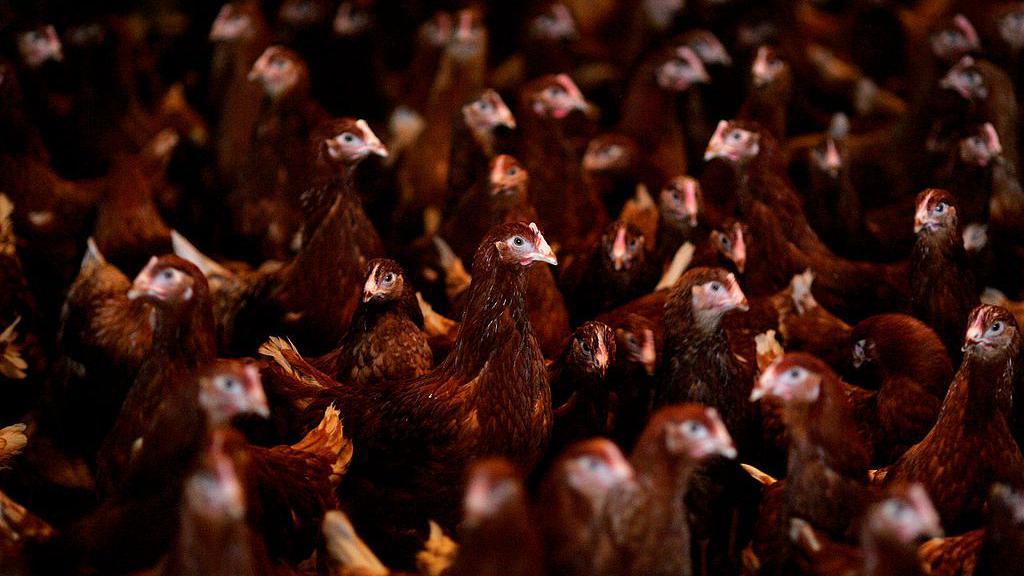
A farmer in East Sussex wants vaccinations to help tackle uncertainty for businesses
- Published
An East Sussex farmer has called for chickens to be vaccinated to ward off bird flu.
It comes after avian influenza was detected in Udimore, Rye, last month, which prompted a government order to keep all birds within 1.86 miles (3km) of the site indoors.
Farmer Zoe Chinman said it was difficult to house thousands of birds indoors at the "drop of a hat" and that she lives in constant fear of rules forcing her birds into "flockdown".
A Department for Environment, Food and Rural Affairs (Defra) spokesperson said bird flu had a "devastating impact" on farmers, but "scrupulous biosecurity remained the most critical form of defence in keeping birds safe".
Prof Janet Daly, from the Veterinary Medicine and Science department at Nottingham University, said that "it is an increasingly dire situation" but warned that "vaccines are not absolutely perfect".
She told BBC Radio Sussex that vaccines supress a virus but do not stop it mutating.
As well as being expensive, a vaccine might allow the virus to mutate to the extent that humans become at risk of being infected, she added.
Currently, if one bird is infected the whole flock is culled, a process called "stamping out".
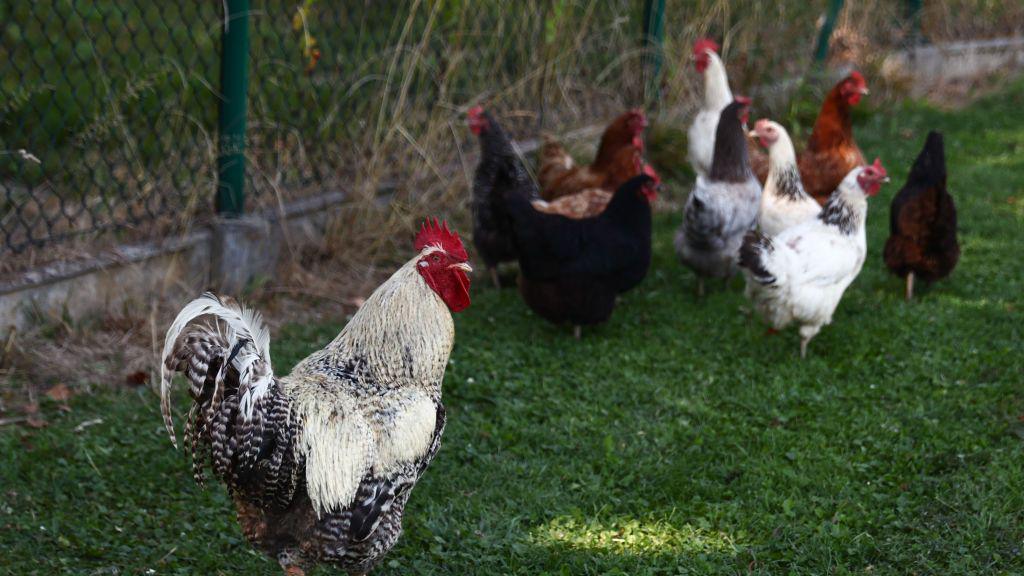
Farmers who choose to keep their poultry indoors, rather than be told to, lose their free-range status
Ms Chinman, from East Sussex Smallholders, near Lewes, said it was difficult for her business, which sells up to 10,000 chickens each year, to face the risk of sudden shutdown, as "we have to remain commercially viable".
Gary Ford, from the British Free Range Egg Producers Association, told BBC Radio Sussex that "vaccination is a key potential way of protecting our birds".
However, he acknowledged that it is currently illegal to vaccinate birds in England unless they are in a zoo and that developing a suitable vaccine "is some way off".
Fears for farmer finances
Ms Chinman added that outbreaks of influenza and the subsequent restrictions had caused a "massive amount of uncertainty", as birds could not be moved between buyers and sellers.
"If we can't sell them because there's a local outbreak it will literally bankrupt us," she told BBC Radio Sussex.
The UK Health Security Agency (UKHSA) has said avian influenza is primarily a disease of birds and the risk to the general public's health is very low.
A Defra spokesperson said the government was continuing to invest in the research and development of vaccines through its bird flu vaccination taskforce.
All poultry on the premises in Rye where bird flu was detected in January were ordered to be humanely culled by Defra.
A 10km surveillance zone was set up, alongside the 3km protection zone.
Follow BBC Sussex on Facebook,, external X, external and Instagram., external Send your story ideas to southeasttoday@bbc.co.uk, external or WhatsApp us on 08081 002250.
Related topics
See also
- Published18 June 2024
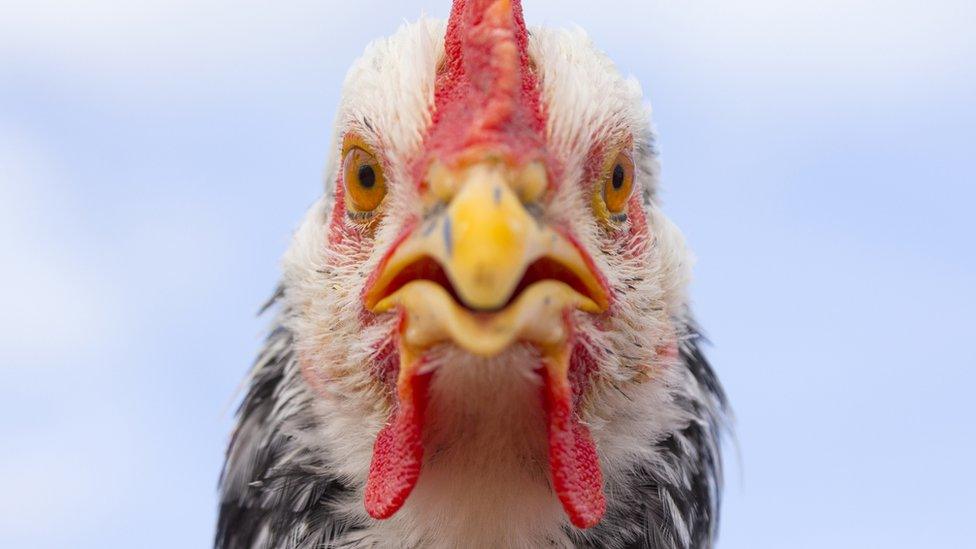
- Published31 January
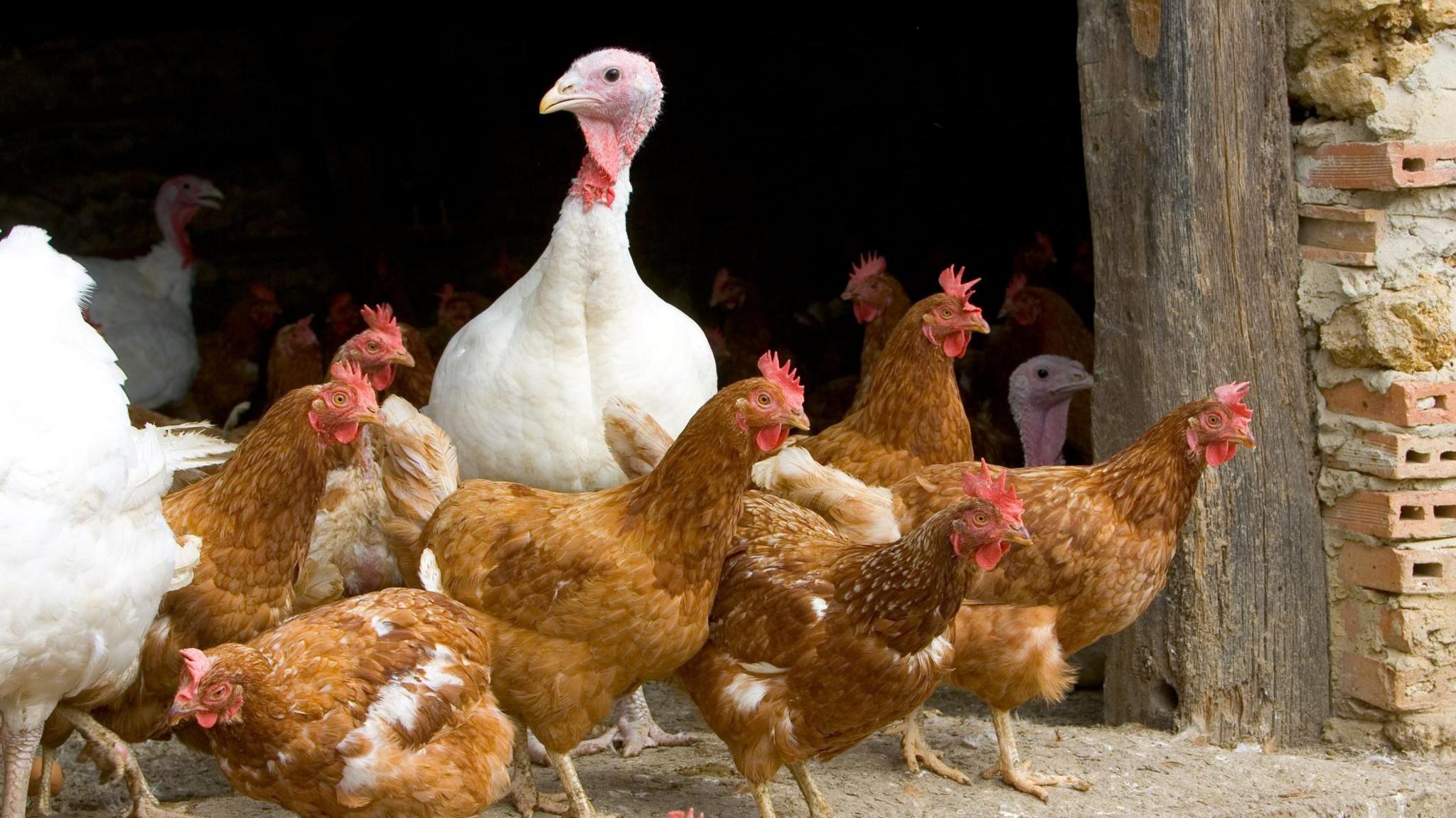
- Published18 January
